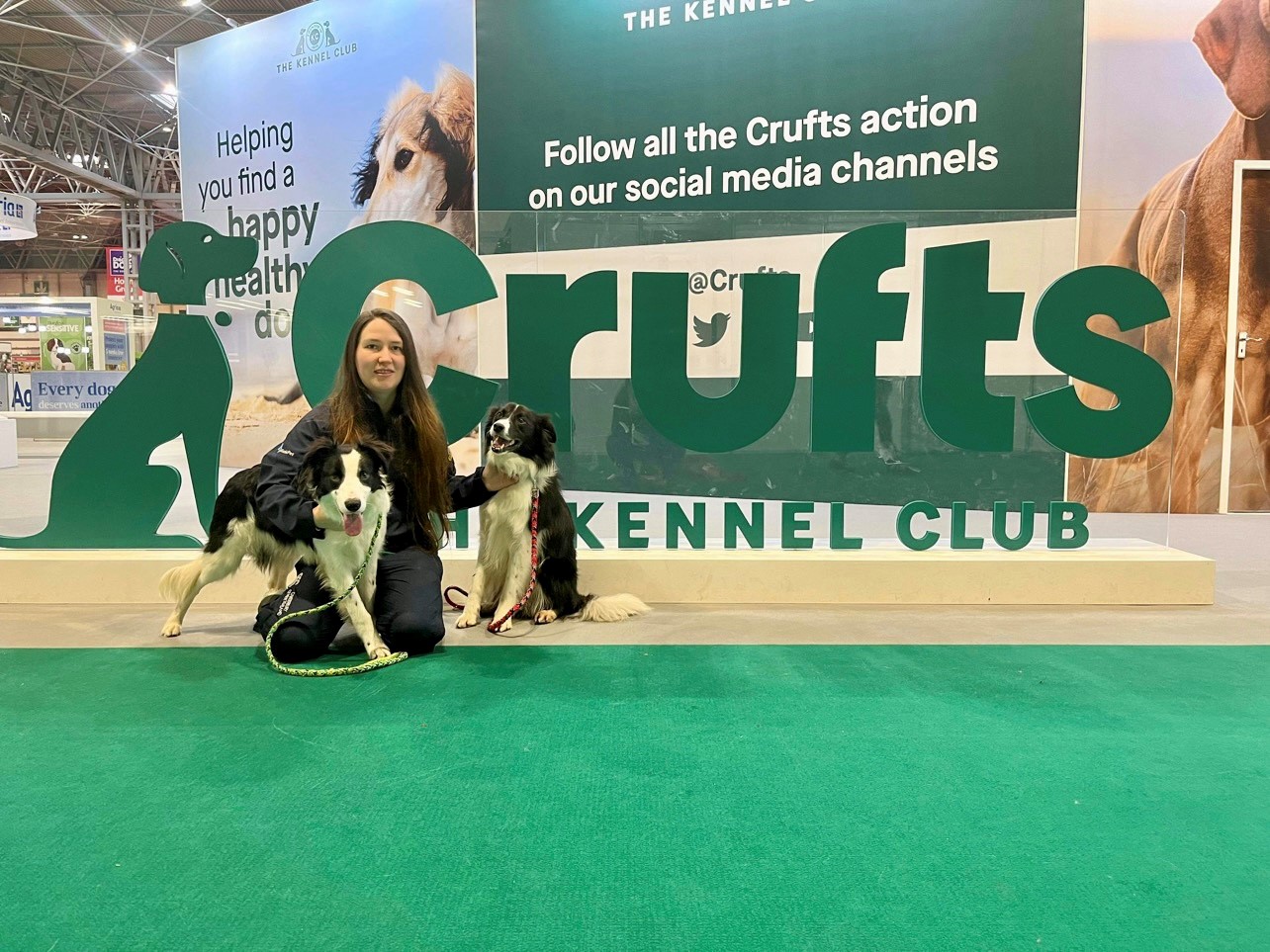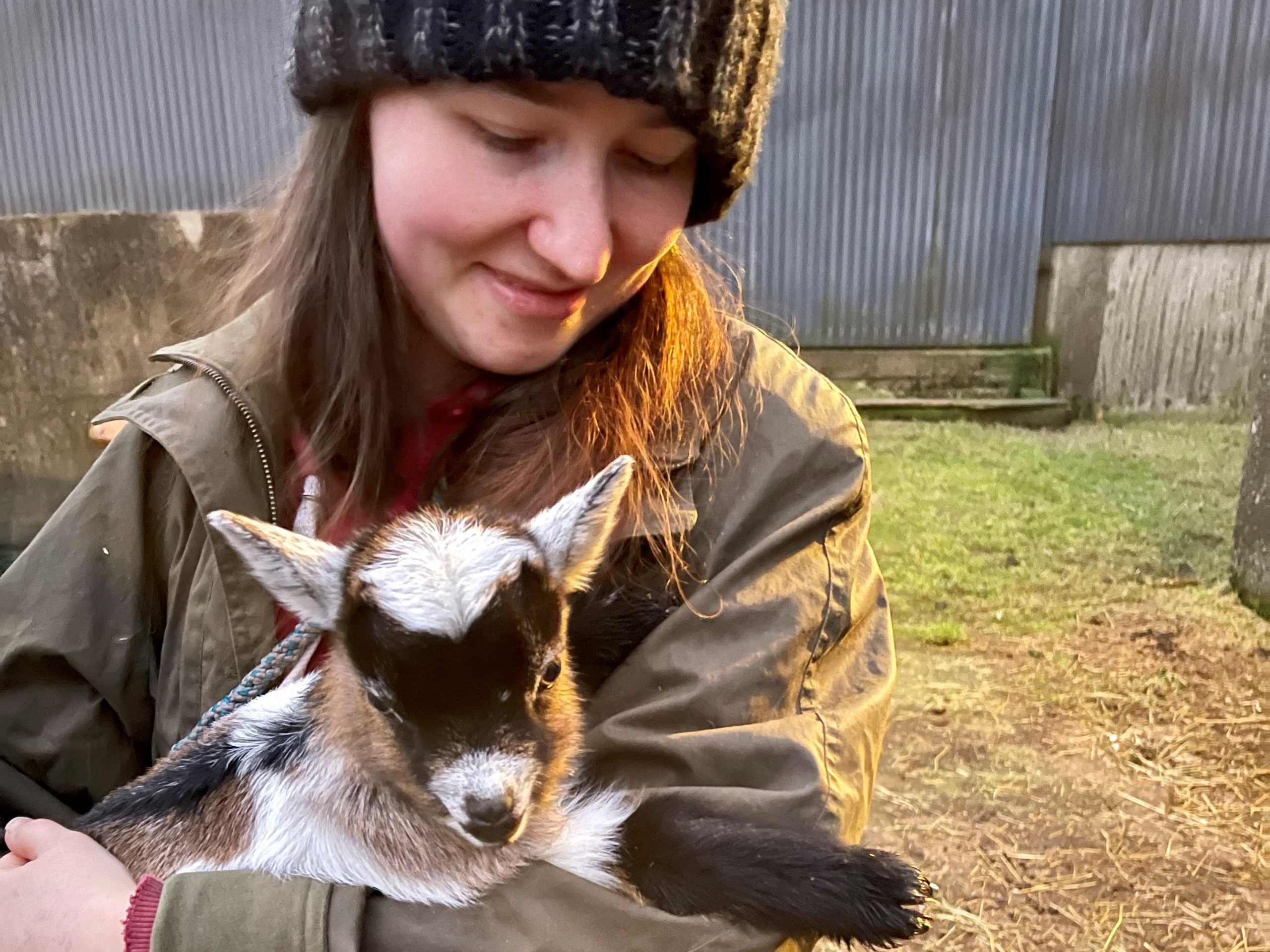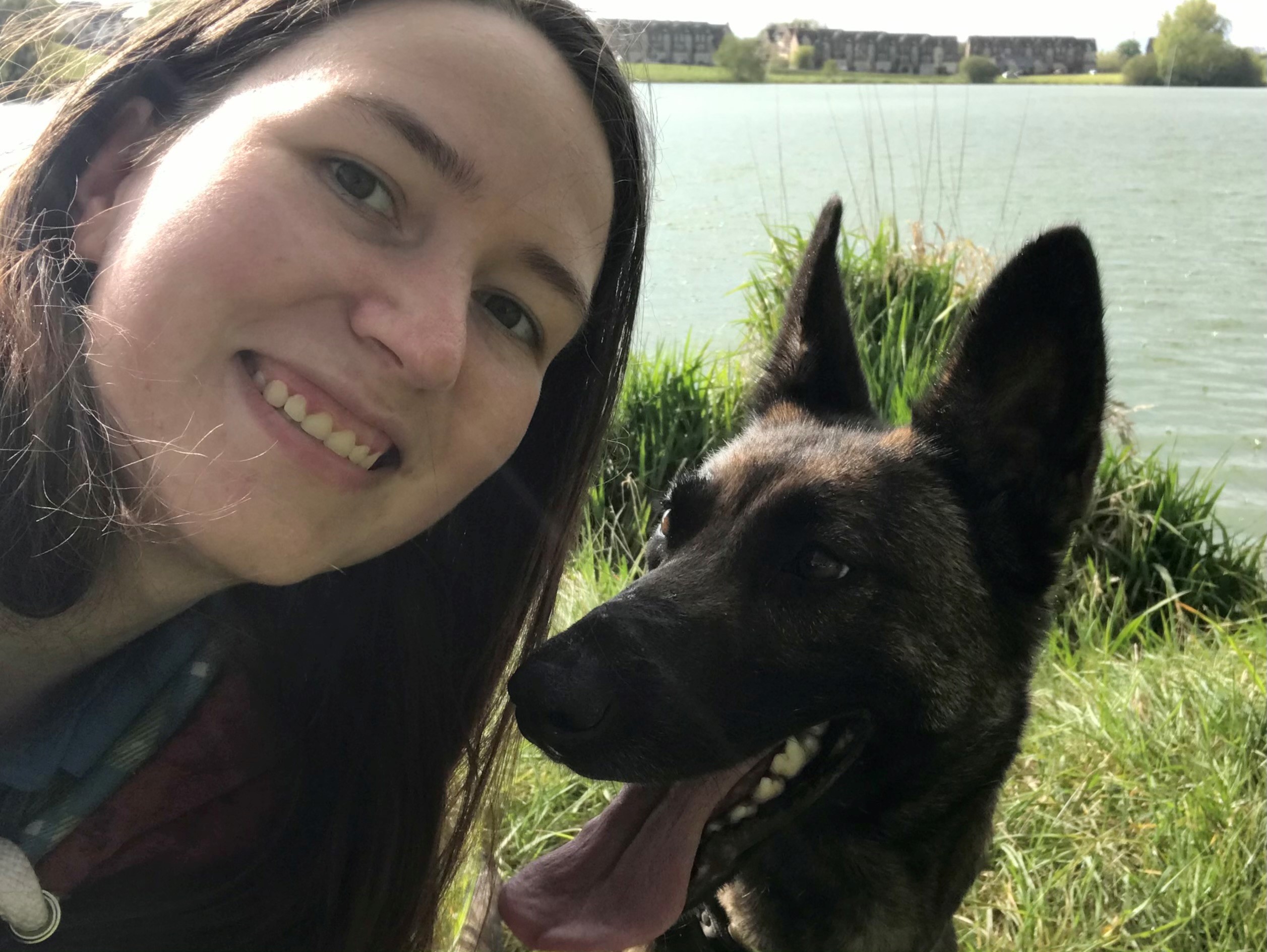Clinic manager Daisy Mulcahy was recognised for helping to release the potential of vet nurses within her clinic
Daisy Mulcahy joined Vets Now Belfast in 2019 and became Clinic Manager in August 2021.
Daisy recently won a Vets Now Values Award – a quarterly prize awarded to one person within the company who best demonstrates our values: caring, innovation, responsibility and releasing potential.
Daisy’s teammates recognised her vital role in FAST scan training for the vet nurses in her clinic. This has made life easier for the vets on duty and increased the quality of care available to patients.
In this Q&A, Daisy discusses how it feels to be rewarded for her hard work and dedication, the role of nurses at Vets Now Belfast, her route into the veterinary profession, her work-life balance and much more.
How does it feel to win a Vets Now Values Award?
A bit mad really. I wasn’t expecting it – it came as a big surprise, but a really nice one.
No matter where I’ve worked in the past, I’ve always enjoyed supporting others and liked the idea of trying to inspire them. It’s really nice to work somewhere where that’s not only encouraged, but also celebrated.

Describe the role nurses play at your clinic.
Our nurses triage the vast majority of our patients that come to the clinic and ensure they all get the necessary treatment when they need it.
They’re also heavily involved in all the inpatient care. Things like taking bloods, wound management, medicating the inpatients, and generally just helping to reassure pets that are in an unfamiliar – sometimes scary – setting.
Our vet nurses are amazing, not that I’m biased at all. They juggle several to-do lists in their head and work their way through all of them. No matter what’s added, they just keep going!
Why is it important for nurses to lead FAST scans in clinic?
By developing their skills in FAST scans or point-of-care ultrasonography, our vet nurses can pick up on possible changes within our patients.
If we record any findings of free fluid, for example, we can continue those scans throughout the patient’s time at the clinic and we’ll be able to compare whether they’re getting better.
It’s easier for us to identify the need for care plan changes sooner rather than later, which is a big help to our vets. If a nurse can pick up on a change to a patient and flag it to the vet on duty, we can make changes quickly – which benefits everyone. 
Daisy MulcahyIt's no secret that the veterinary industry is a stressful industry to work in and mental health is a big problem. As a company, Vets Now try a lot to support everyone. There are lots of avenues that people can take if they want help.
What’s your favourite thing about your role?
No matter how long I’ve been in management, I will always enjoy my clinical work and working with patients.
When a patient is admitted to the hospital, the client is understandably worried and upset.
To be able to walk a pet out to their owner at the end of their stay, while the client is just so thrilled to see their pet after not knowing whether they’d come out again.
To be able to do that, see the client’s face and be like, “Yeah, me and my team played a part in that.”
I enjoy that not only as a nurse, but also from a management point of view. It gives me a huge sense of pride to know that my team has just saved a pet’s life.
Describe your route into the profession.
I wanted to be a vet while I was at school but once I’d looked into what was available out there, I decided that the role of a veterinary nurse was much more appealing to me. I preferred the idea of working as closely with patients as vet nurses do.
I went to Harper Adams University to study veterinary nursing and practice management – I hadn’t intended to go into management, but I just thought, why not add another string to my bow? You can ask my team whether or not it paid off!
My first job as a student veterinary nurse was at a little mixed practice in County Fermanagh. My first role as a fully qualified veterinary nurse was with the PDSA in Belfast – without them, I wouldn’t be the nurse I am today.
I did a small stint in veterinary recruitment but quickly decided that that wasn’t for me.
I didn’t really know what I wanted to do so I took a break. During that time, I did a few locum shifts at Vets Now, then a permanent position came up and now here I am several years later.

What is it about ECC that you like?
Lots of things. You never know what will come through the door and no two shifts are ever the same.
There’s a vast difference in the sort of cases that you see, but also in the type of patient. As well as dogs and cats, I’ve had multiple hedgehogs and even wallabies have come through our door from the local zoo.
I like the unpredictability and the rush of those critical cases – you always have to be on point.
Nothing ever gets boring and from a personal perspective, I like the work-life balance that it gives me.
How have your shift patterns helped you to focus on your hobbies outside of work?
I can do things during the week that I wouldn’t have time for if I had a typical nine-to-five job. I’ve still got some evenings and mornings to myself that I can dedicate to my hobbies and friends – as well as the chores that adulthood brings.
I’ve been training my dogs in Obedience for about three years now and I’ll be competing at Crufts this year, as part of the Northern Ireland team for the first time.
I’ve been able to dedicate much more time to Obedience training since I started at Vets Now.

What do you like about Vets Now as a company?
First and foremost, it would be the support that you get from every department.
There is also great wellbeing support within the company. It’s no secret that the veterinary industry is a stressful industry to work in and mental health is a big problem. As a company, Vets Now try a lot to support everyone. There are lots of avenues that people can take if they want help. I’ve not really heard that to be the case to such an extent before in any other role that I’ve had.
The health, safety and wellbeing team are also great, and my line manager is very supportive – no query is ever too little or too big.
Describe the culture in your clinic.
Our team has grown vastly over the past few years, but we’ve remained as close-knit as we were before.
We’re as mad as hatters. We all love our takeaways as well – as soon as one person goes “Oh, I fancy a pizza,” everyone’s like “Yep, me too.”
There’s just this nice, easygoing culture amongst everyone. I guess “cozy” would be a word for it. It’s a bit like an extended family, I guess.
